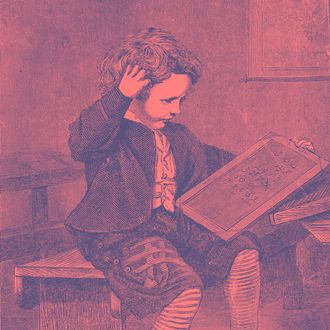
You may not be familiar with the term stereotype threat, but chances are high you are familiar with the thing itself. It’s when you inadvertently behave in a way that fits the stereotype others hold about you. Studies over the years have shown, for example, that girls perform worse at math when you remind them of the “girls are bad at math” stereotype. And this noxious idea, incidentally, is apparently embedded so deep in our culture that researchers don’t even have to explicitly remind kids about the stereotype. If they simply ask students to write down whether they are males or females before taking a math test, the girls tend to perform worse.
Now, NPR’s Shankar Vedantam highlights some fascinating new research that applies the notion of stereotype threat to a whole new stereotype: that American Christians and science do not mix. This week, Vedantam appeared on Morning Edition to discuss the study, published recently in Social Psychological and Personality Science, reporting that Christian students in a study who were reminded of the Christians-hate-science stereotype subsequently performed worse on a test measuring scientific reasoning. In a separate experiment, the Christians who were told they were taking a test measuring their scientific reasoning did worse than the Christians who were told they were taking a test measuring their intuitive reasoning.
Analyzing this finding is tricky, because there are some instances in which a person who grew up in Christianity really might be less knowledgeable about some basics of science, particularly if they attended a religious school. (You certainly would know less about evolutionary theory if you grew up memorizing which days God created what instead.) But these experimenters weren’t asking their subjects about general science knowledge. Rather, they were asking about logic and reasoning, asking their subjects to identify whether a series of statements represented accurate or poor reasoning skills. And, crucially, when reminders of the “religion and science don’t mix” stereotype were removed, “performance differences between Christians and non-Christians disappear,” the study authors write.
As Vedantam notes, people don’t even need to believe in the stereotype themselves — but the fear that others might believe in it might cause enough anxiety to cause you to “question your own behavior and impede your performance.” You end up spending so much mental energy worrying that a stereotype is true that you end up proving it so, regardless of your actual talents or abilities. Stereotypes are persistent, complicated things indeed.




